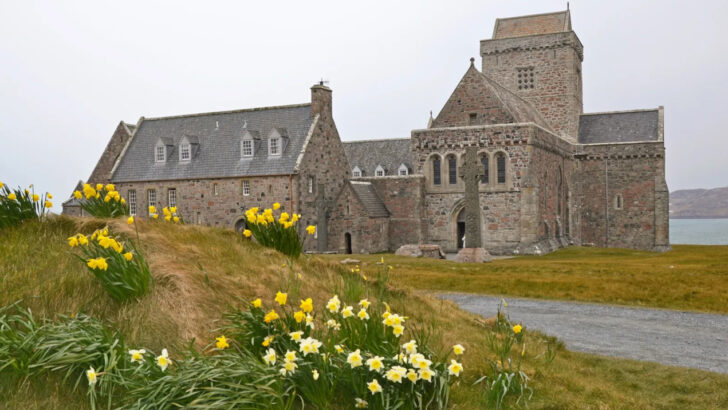The Book of Iona: An Anthology
edited by Robert Crawford (Polygon / Birlinn, £12.99)
The remote island of Iona has a special place in the memories and affections of thousands of people in Scotland and Ireland.
In my own case, I still recall, so very distinctly it is like a dream, my first visit to the island. On the little ferry that takes one from the coast of Mull to the little harbour at Port Rónan on the island, the water over the white sandy sea bed was so brilliant and clear we seemed almost to be floating in air towards the shore of the holy island. It really is a place apart.
This anthology, edited by Robert Crawford, the Professor of Modern Scottish Literature in the School of English at the University of St Andrews, is a quite exceptional piece of work. But then Crawford is also a poet and translator and is steeped in the literature of Scotland over the long entangled past and the combative present. This is demonstrated also in The New Penguin Book of Scottish Verse, which he co-edited with Mick Imlah.
The usual way of assembling an anthology is either to lay out the contributors in alphabetical order; or alternatively, in strict chronological order. But in Iona Crawford eschews these in preference to assembling the selected pieces in a manner that allows them to resonate with and comment on each other in an interactive way.
The forty seven pieces taken from Adomnán’s life of St Columba are scattered through the book. But they have also been recast in the form of poetry, which gives them a new vitality, that makes the most familiar hagiographical passages in their time-dulled prose into something new and brilliant, much like that sea passage.
For instance, that notorious passage describing the saint’s encounter with what ancient Irish tradition calls a beiste, not in the great loch to the south-west, but in the River Ness close to Inverness, becomes as a poem more credible to the modern reader, more acceptable to the imagination, for now it effectively echoes Gaelic tradition entirely.
Aside from this spine provided by Columba’s first biographer, and the foundation of all real knowledge of him, Crawford has assembled some forty two other writers. These show an amazing and sensitive variety that keeps one’s attention. Boswell and Dr Johnson are there, of course, but so are Sir Walter Scott and Herman Melville, Candia McWilliam and Lionel Johnson. Contrast is all: a passage from Shakespeare’s Macbeth is paired with Crawford’s own poem Icolmkill. Robert Louis Stevenson and Queen Victoria also find their place, as do John Keats and Louise Imogen Guiney.
Here every reader will find writers they feel the need to know more about. Though the classics are all here, Crawford commissioned much of the material from the writers involved. This adds a taste of freshness that is appealing.
Unlike other books on Iona, Crawford does not forget that over time other people aside from saints lived on the island, or nearby; piety finds a place, not on its own, but as part of general experience. So here, for once, the sacred island Iona is set into the circle of Highland life and history in a really attractive and moving way.
If you’re thinking of visiting Iona this is one of the books you should read in advance.


 Peter Costello
Peter Costello Iona Abbey in spring time, a place of pilgrimage for all
Iona Abbey in spring time, a place of pilgrimage for all 